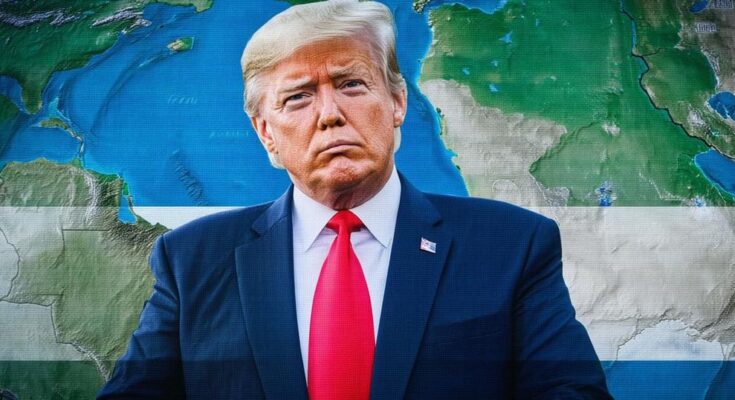Saudi Arabia and the UAE are poised to favor Donald Trump in the upcoming U.S. election, hoping to harness his administration’s prior support for regional military ambitions. In contrast, Vice President Kamala Harris’s expected policies could undermine their strategic goals by re-engaging diplomatically with Iran and reshaping U.S.-Gulf relations. This context illustrates the nuanced geopolitical calculations at play as the Gulf States seek to navigate their security and strategic interests amid evolving U.S. foreign policy.
The Gulf States, particularly Saudi Arabia and the United Arab Emirates, are reportedly favoring the re-election of former President Donald Trump due to their desire for stability that aligns with their regional ambitions. Amid a backdrop of escalating tensions following Israel’s military actions in Gaza, the Gulf States find themselves on high alert. While conventional wisdom might suggest a preference for Democratic nominee Vice President Kamala Harris, given her anticipated tougher stance on regional conflicts and a diplomatic approach toward Iran that contrasts with the Gulf’s interests, the historical alignment of the Gulf States with Trump’s unilateral foreign policy becomes apparent. During Trump’s administration, both Saudi Arabia and the UAE benefited from substantial U.S. support, including arms deals and a hardline stance against Iran, which they may perceive as crucial for their security and political leverage. In contrast, the Biden administration’s foreign policy under Harris could likely involve a return to the diplomatic engagements reminiscent of the Obama era, which would be unfavorable to the Gulf’s strategic objectives. For example, Harris’s commitment to the re-negotiation of the Iran nuclear deal raises concerns for Riyadh, which regards Tehran as a principal threat. Additionally, Trump’s administration facilitated significant arms deals with Saudi Arabia, enhancing its military capabilities. In contrast, the Biden administration has critiqued Saudi-led operations in Yemen and initiated scrutiny over arms sales due to humanitarian concerns. This shift heightens the stakes for Saudi Arabia, which seeks advanced military technology amidst ongoing regional conflicts. Furthermore, both states view Trump’s potential second term as a chance to capitalize on a more favorable U.S. position that could enable them to solidify their security partnerships and military advancements. The UAE’s strategic cooperation with Israel, established under the Abraham Accords, is also indicative of the broader implications for Middle Eastern geopolitics that could evolve under a second Trump presidency. Hence, while both Gulf States share an inclination towards Trump due to the perceived advantages, the dynamics may also incite rivalry, as each nation competes for stronger ties with Washington, which could potentially alter the regional power balance.
The geopolitical climate in the Middle East is heavily influenced by the relationships between the Gulf States, the United States, and regional adversaries such as Iran. As the U.S. presidential election approaches amid ongoing military conflicts, particularly between Israel and Hamas, the Gulf nations grapple with their strategic approaches against a backdrop of uncertainty about future U.S. foreign policy direction. Saudi Arabia and the UAE harbor political aspirations that require a U.S. ally willing to provide military support and solidify their geopolitical standing, which they associate primarily with former President Trump’s administration. The changing nature of U.S. engagement in the Middle East, particularly with regards to arms deals and military alliances, adds complexity to these nations’ security strategies. Each kingdom’s ambitions are also colored by their interactions with various factions within the region, further complicating their diplomatic and military calculations. The UAE’s dynamic relationship with Israel through the Abraham Accords juxtaposes with Saudi aspirations, suggesting a competitive, yet interconnected, regional framework that could evolve further based on U.S. election outcomes.
In summation, the Gulf States, particularly Saudi Arabia and the UAE, demonstrate a profound preference for former President Trump over Vice President Harris as the upcoming U.S. presidential election approaches. This inclination stems from their reliance on Trump’s administration for military support, arms deals, and a tough stance against Iran—alignments that favor their strategic regional ambitions. However, the potential for rivalry between the two states could emerge from competing interests in cultivating deeper ties with the U.S., presenting a complex geopolitical landscape that the next American administration will have to navigate carefully.
Original Source: foreignpolicy.com




